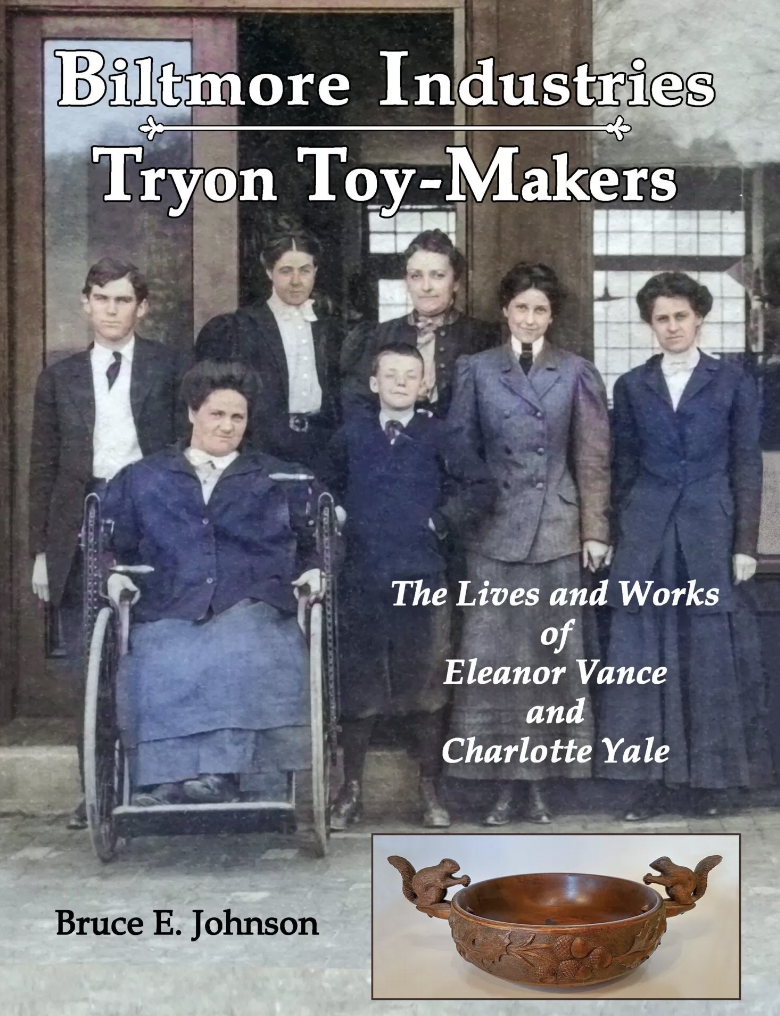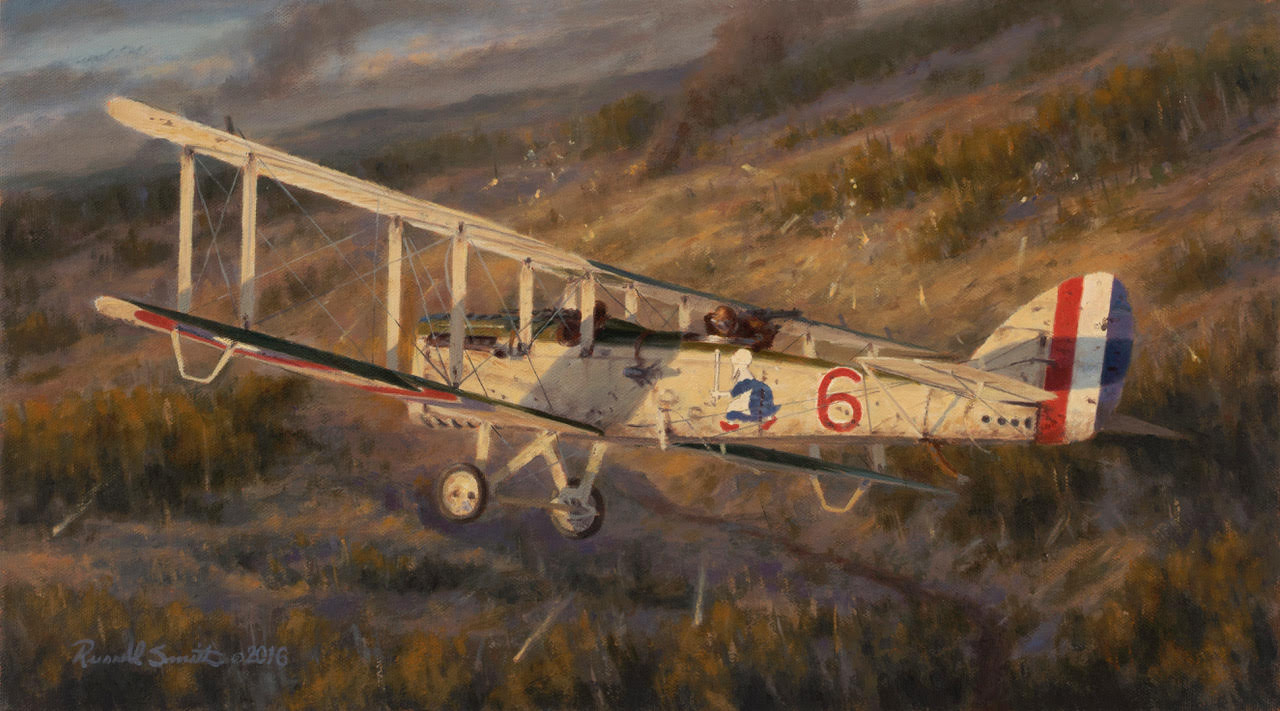Book on Tryon Toymakers is a delightful read
Published 8:46 am Friday, September 22, 2023
|
Getting your Trinity Audio player ready...
|
Asheville writer and historian Bruce Johnson has graced us with a long-needed addition to the bookshelves of Tryon’s historical lore. In it, he tells a story that vividly illustrates the oft-repeated phenomenon of a small mountain town casting a beam that spread across the world.
Johnson, author of 2019’s Tom, Scott and Zelda has hit home again. Products from Tryon Toy-Makers and Biltmore Industries have won the enduring acclaim of a wide audience for well over 100 years, but the story of their creators has remained far less well-known.
Now, Johnson has brought to life the story of two ladies, born in the mid-Victorian age, who labored hand-in-hand for nearly 60 years “serving unnoticed and working unseen,” not only in the crafting of items that surprised and delighted the world but in the building of character in mountain children—a gift that contributed to the lasting good of their communities. A fitting legacy has survived its creators by some seven decades, but the memory of the creators themselves has lingered largely in the shadows.
Trending
Were they here today, Eleanor Park Vance (1869-1954) and Charlotte Louise Yale (1870-1958) doubtless would be content—perhaps even eager—to leave it that way. Bruce Johnson has thought to the contrary and we can all be grateful.
Eleanor Vance was reared in middle-class comfort in suburban Cincinnati. She later explained that she “was the sort of little girl who would rather play with hammers and saws instead of dolls”—a choice that might raise eyebrows today but surely would have raised more 150 years ago.
Eleanor attended the Cincinnati Art Academy where she had the good fortune to encounter an instructor who believed women were uniquely suited for woodcarving. She became a master of that art, but after finding that the marketplace did not share her instructor’s progressive notions, decided in 1899 to enroll in the Chicago Bible Institute (later Moody Bible Institute).
It was here apparently that Eleanor’s path first crossed Charlotte Yale’s. Yale likely was born in New York state but grew up in Cheyenne, Wyoming. In the late 1880s, she made her way to Ohio, where she attended Oberlin College. After working in the YWCA movement, she enrolled in the Bible Institute. There, she and Eleanor became inseparable companions. For the balance of their long lives, they thought of themselves as missionaries, dedicated not only to living the Christian gospel but also to helping others lead more rewarding lives through the building of character and self-reliance.
Through a meandering chain of circumstances, Eleanor and Charlotte arrived in Asheville in the spring of 1901, just as Biltmore Village was assuming its final shape. They were soon involved with the youth at All Soul’s Church, combining woodworking instruction with Bible lessons. By 1905, their activities had evolved—with the backing of Edith Vanderbilt—into Biltmore Estate Industries. Over the next 10 years, the enterprise took flight, expanding beyond its signature wood-carved pieces into the production of needlework, homespun cloth, and eventually furniture.
Vance and Yale served as co-managers of the Biltmore venture. They employed mostly teenagers, more than a few of whom became master crafters in their own right.
Trending
George Vanderbilt’s sudden death in 1914 and the subsequent purchase of Biltmore Industries by Fred Seely, the builder and manager of Grove Park Inn (opened 1913) changed everything. Although the ladies remained friends with Seely—he championed their efforts and provided a market at Grove Park for their subsequent products—they decided the time had come to chart an independent course.
Forty miles to the southeast, the village of Tryon had become a haven for artists, writers, and a wide array of worldly, enlightened sorts from the Midwest and Northeast who were attracted by the town’s picturesque setting, mild climate, and friendly ambience, not to mention its location on a mainline of the Southern Railway. Many in Tryon were already aware of the pair’s work in Asheville and, in the spring of 1915, welcomed them to town with open arms.
Among Vance and Yale’s early friends in Tryon were actor/playwright William Gillette and writer/photographer Margaret Morley. Since Eleanor and Charlotte did not wish to compete directly with their friend, Fred Seely, or with workers they had trained at Biltmore, Gillette suggested they design and market a line of colorful children’s toys, similar to those from Germany’s Black Forest. Morley agreed, having seen comparable products in Italy’s Tyrol region. The two set to work, creating their best-remembered, longest-lasting legacy.
Over the next twenty years, a profusion of dolls, animals, spinning tops, and nursery rhyme characters came out of the shops of the Tryon Toy-Makers and Wood-Carvers, along with custom-designed chairs, tables, mantles, doors, and a large, wheeled horse, whose direct descendant, Morris, stands watch today over the town at Trade and Pacolet Streets and serves as its official mascot. During these years, Vance and Yale won the friendship and support of First Ladies Grace Coolidge and Eleanor Roosevelt, who hosted them at the White House in 1935.
The intrepid duo weathered the Great Depression before advancing age and wartime restrictions forced their retirement in 1943. They lived out their years in Tryon, shunning the recognition to which they were entitled. The Toymakers continued under a succession of owners into the 1990s and in 2016 experienced a rebirth under Tryon native, Julia Calhoun, in her shop on Trade Street.
Bruce Johnson is a skillful writer and throughgoing researcher whose affection for the two ladies he profiles is palpable. The book is a page-turner, but one that inspires as it entertains, telling a story of humility, faith, gratitude, and persistence. One hundred sixty-five pages of lively text and over 200 illustrations are followed by 30 pages of end matter, including exhaustive bibliographical notes and a set of comprehensive appendices. Anyone wishing to build a truly inclusive Tryon library should own this book.
Copies of Biltmore Industries, Tryon Toy-Makers: The Lives and Works of Eleanor Vance and Charlotte Yale are available at the Tryon History Museum, the Polk County Historical Association, and the Lanier Library.
Submitted by Dick Callaway






